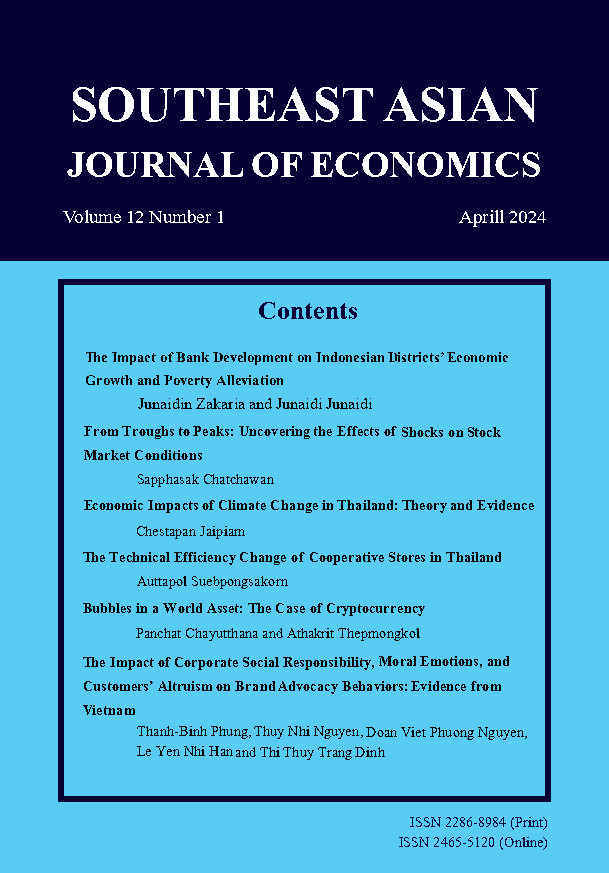The Impact of Bank Development on Indonesian Districts’ Economic Growth and Poverty Alleviation
Keywords:
Indonesian bank offices, deposits, financing, economic growth, poverty reductionAbstract
This study investigates the conventional and Indonesian Islamic banks’intermediary role in enhancing economic growth and reducing poverty in 33 Indonesian districts during 2012–2020. Data panels were examined by fixed-effect analysis and cross-sectional effect. This study found that, compared to Islamic bank offices, the number of conventional bank offices has a greater effect on Indonesian GDP, while Islamic banks have an essential role in reducing poverty. Conventional bank financing positively affects economic growth and poverty alleviation. Islamic bank deposits have a strong correlation to Indonesian districts’ economic growth and poverty. Meanwhile, conventional bank deposits have a greater effect on reducing poverty than GDP. Therefore, conventional and Islamic banks have a crucial role in enhancing economic growth and solving income inequality in the domestic context. This study contributes to economic literature with a practical and local government decision-making process through developing and testing a model of economic growth and poverty determinants and offers new insights into the determinants of bank principles in a financial system.
Downloads
Published
How to Cite
Issue
Section
License
Copyright (c) 2024 SOUTHEAST ASIAN JOURNAL OF ECONOMICS

This work is licensed under a Creative Commons Attribution-NonCommercial-NoDerivatives 4.0 International License.
The submission of a manuscript implies that the paper is an original work and has not been published elsewhere. The author(s) authorize the journal to reproduce or distribute the paper in printed or other electronic forms.







